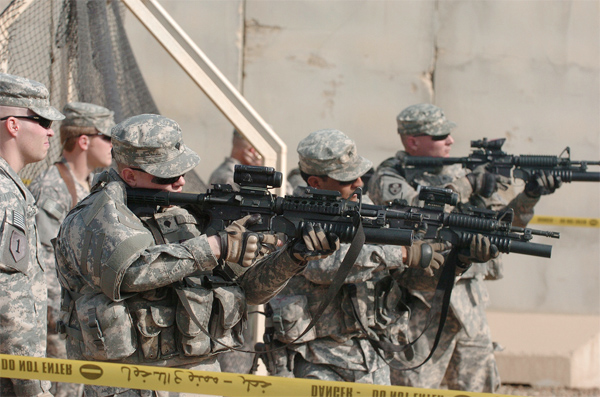Insufficient resources, lack of training for investigators and a variety of other problems have plagued the Defense Department system intended to investigate allegations of retaliation against military whistleblowers, according to a recently disclosed government report. At the same time, the number of military whistleblower retaliation allegations has “more than doubled” from fewer than 300 in 1997 to nearly 600 in 2007, according to the report.
The Project on Government Oversight (POGO) obtained a copy of the 2009 report, “A Review of the Department of Defense Office of Inspector General’s Process for Handling Military Whistleblower Reprisal Allegations,” which was written by the Justice Department Inspector General’s office at the request of the Department of Defense Inspector General Gordon Heddell.
“The Wikileaks experience is a reminder that there should be safe harbors inside the government for military personnel to blow the whistle. We are glad to see the DOD IG added resources into this essential program, but this is a problem that can’t be fixed just by throwing money at it – the laws need to be strengthened,” Nick Schwellenbach, POGO’s director of investigations, said in a statement.
The Pentagon Inspector General’s Directorate of Military Reprisal Investigations (MRI) (and its oversight of the Air Force, Army, Marine Corps and Navy IGs) is at the center of the report. The number of reprisal complaints peaked in 2004, according to the report.
Overall, the report found that the biggest challenge MRI is facing is timeliness, as it “has not been able to come close to resolving complaints within the statutory 180-day deadline.”
“The failure of MRI to meet consistently the statutory time deadline is largely a function of insufficient staffing to handle the large and growing number of reprisal allegations,” the report states.
In addition the report found that the military reprisal program “has not had a high profile within the DOD OIG.” A senior DOD OIG manager told the authors of the report that MRI matters “are rarely discussed within the OIG and substantiated cases of reprisal are not publicized.”
“We believe that MRI should do more to ensure that cases delegated to the service IGs are assigned for investigation outside the chain of command of the involved parties,” the report states.
Since the report was issued, there has been significant progress in implementing the recommendations, according to the Defense Department IG’s March 2010 semi-annual report to Congress.






